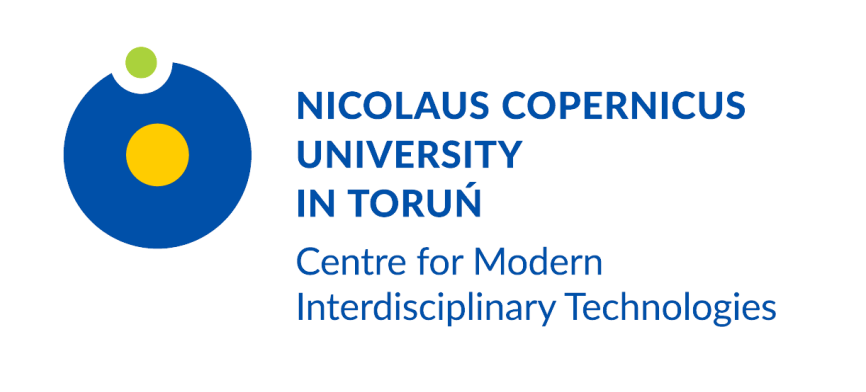Interdisciplinary Physics and Computer Science team – ZIFI
Project manager: prof. dr hab. Wiesław Nowak
There are the following laboratories within ZIFI:
BioInfoNano Science Laboratory
Laboratory manager: prof. dr hab. Wiesław Nowak
The laboratory carries out research projects with application values in the field of bioinformatics, structural bioinformatics of proteins, large-scale computer simulations of the dynamics of complex systems, parallel calculations using multi-core graphics cards, visualization of biological systems, research on the structure and properties of quantum dots and other low-dimensional structures of nanotechnological importance. It is planned to cooperate with teams of biologists and biotechnologists in the field of modeling photoactive enzymes and signaling proteins, research of proteins responsible for neurodegenerative diseases and strokes. In addition, an international project of fluorescence nanotomography will be developed, leading to the development of a non-invasive method of measuring blood glucose levels (important in the course of diabetes). Nanomechanical methods of diagnosis, e.g. for muscular dystrophy, will be improved.
Laboratory manager: prof. dr hab. Włodzisław Duch
Neurocognitive Laboratory is devoted to basic and applied research that helps to understand human development, biological foundation of behavior, specific skills, relation between mental and brain processes. We focus on basic research that open the way to social innovations and practical applications, innovations that facilitate development of full human potential at all stages of life, from infancy to old age. This is a great challenge, requiring the use and development of sophisticated equipment, work of highly interdisciplinary group of experts in cognitive science, neurosciences, psychology, informatics, signal processing, technical sciences, physics, statistics and mathematics. Currently most of our work is concentrated on understanding mechanisms that enable effective training of cognitive skills using therapeutic computerized games.
Some people from the Neurocognitive Laboratory are also members of the Neuroinformatics and Artificial Intelligence Team of the University Center of Excellence Dynamics, Mathematical Analysis and Artificial Intelligence.
Luminescence Dating Laboratory
Laboratory manager: dr hab. Alicja Chruścińska
The following interdisciplinary projects are carried out in the Luminescence Dating Laboratory: determination of the age of geological sediments using the OSL method; dating historical objects (ceramics, brick) and performing authenticity tests of works of art using luminescent methods; studies on the influence of ionizing radiation on the properties of new materials (stimulated luminescence is a tool for detecting structural defects); study of the level of environmental radiation after nuclear accidents and disasters.
Laboratory of Nondestructive Analysis
Laboratory manager: prof. dr hab. Piotr Targowski
The subject of the team’s interest are non-invasive or micro-invasive methods of studying the structure and properties of various objects and materials, primarily for the conservation of monuments: high-resolution OCT and integrated laser emission spectroscopy (LIBS), X-ray fluorescence analysis in a version that allows mapping the distribution of elements on large surfaces (macroXRF) and electronic modeling of the surface shape of objects. The obtained results are analyzed in close cooperation with specialists from the Institute of Monuments and Conservation of the Nicolaus Copernicus University. The results allow for a better understanding of the physico-chemical properties of the object, in particular its state of preservation and construction. The data is used for more precise planning of conservation measures and may, in certain cases, be used to verify its dating and attribution, and to assess the impact of the storage environment conditions.
Laboratory of MEMS Systems
Laboratory manager: Dr. Marcin Kowalski
Works related to the design of specialized integrated circuits and precise control and measurement systems for industry will be carried out. The laboratories will deal with time segment metrology and time / digit converters. The laboratories will be able to design integrated circuit prototypes in the AMS CMOS 0.35 um process (CADENCE software).
Laboratory of Low-dimensional Structures
Laboratory manager: dr Anna Zawadzka
Research conducted in the laboratory is related to the engineering of modern materials for electronics, optoelectronics and medical applications. The main goal of this research is to develop technologies related to the production of prototype thin-film structures that will be used in the construction of modern devices such as: sensors (environmental, gas, medical), cheap photovoltaic cells, light sources (light-emitting diodes, displays, cheap lighting), single-use electronics (“smart” goods tags, security system sensors). The organization of the laboratory in the form of three parts: technological, electrical and optical characterization of structures provides a complete path from production to full characterization of the prototype.

 ul. Wileńska 4, 87-100 Toruń
ul. Wileńska 4, 87-100 Toruń